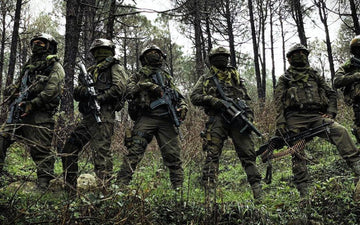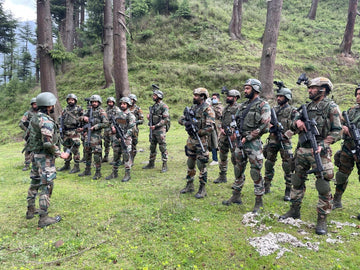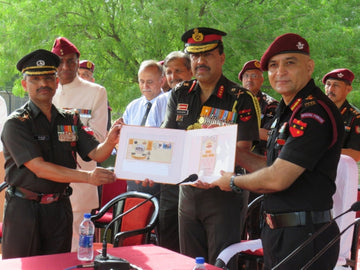The role of a Master Warrant Officer (MWO) is an integral component of military operations, particularly within the ranks of the Indian Air Force (IAF) and similar military organizations worldwide. As a pivotal figure in both technical and leadership domains, MWOs significantly enhance the efficacy of military units. This article delves into the multifaceted powers and duties of a Master Warrant Officer, providing a comprehensive overview of their responsibilities, historical context, current challenges, and future potential within the military framework.
Historical Context
The position of Warrant Officer has a rich history dating back to the 19th century. Initially, such positions emerged out of necessity within naval and army structures to cater to specialized roles that required greater authority and expertise than that possessed by the average enlisted personnel. Over time, as military operations became more complex, the role evolved, leading to the establishment of the Master Warrant Officer rank. This evolution is particularly noteworthy within the Indian military, where the position was formalized to bridge the gap between senior enlisted ranks and commissioned officers, ensuring a seamless flow of command and expertise.
Powers of a Master Warrant Officer
Limited Disciplinary Authority
One of the key powers of an MWO lies in their limited disciplinary authority. While they do not possess the capability to convene courts-martial or impose severe punishments, MWOs can enforce discipline through warnings and recommend disciplinary actions to commanding officers. This responsibility is crucial for maintaining operational integrity and military standards within their units. The ability to identify and address minor infractions promptly helps sustain respect for regulations and fosters a disciplined environment.
Advisory Influence
MWOs are invaluable advisors to commissioned officers, providing insights that stem from their extensive experience and technical knowledge. Their role extends beyond mere execution of orders; they are instrumental in shaping strategy, offering recommendations on operational matters, personnel management, and even technical challenges. This advisory capacity ensures that decisions regarding squadron operations remain aligned with broader military objectives.
Operational Oversight
In their specialized areas, MWOs hold substantive authority over critical operational tasks. Whether in avionics, flight engineering, communications, or logistics, MWOs are responsible for ensuring that the equipment and systems are maintained to the highest standards. This operational oversight is vital, as it directly affects the success of missions and the safety of personnel. By guaranteeing that all technical aspects are in order, MWOs play a crucial role in the operational readiness of their units.
Duties of a Master Warrant Officer
Technical Expertise
The MWO's level of technical expertise is one of their most distinguished attributes. They possess specialized knowledge that is critical for the effective operation and maintenance of military equipment. Their hands-on experience allows them to troubleshoot complex technical issues and ensure smooth operations, thereby enhancing the unit’s overall performance.
Leadership and Mentoring
In addition to their technical skills, MWOs are natural leaders and mentors within their ranks. They serve as the bridge between the enlisted personnel and commissioned officers, providing guidance and support that is essential for developing the skills and careers of junior members. Through training sessions and one-on-one counseling, MWOs foster a culture of continuous learning and improvement in their teams.
Administrative Oversight
MWOs are also heavily involved in the administrative functions of their units. They oversee the execution of various administrative tasks, ensuring that the unit runs efficiently. This includes everything from personnel evaluations to the management of resources and logistics, thereby contributing to a well-organized military operation.
Performance Evaluation and Management
Another crucial duty of MWOs involves the assessment and management of their team members’ performance. They play an integral role in identifying areas that require improvement, setting specific objectives, and compiling progress reports. This performance management process is essential in reinforcing a culture of accountability and excellence.
General Responsibilities
Supervision of Operational Activity
MWOs supervise the operational activities of troops and units, ensuring they function effectively. This includes monitoring performance, providing necessary training, and addressing any issues that arise. Through vigilant supervision, MWOs help maintain the high operational standards expected in military environments.
Emergency Management
In critical situations, MWOs may assume command, using their training and experience to manage responses effectively. Their ability to enforce appropriate legal frameworks and utilize risk assessment techniques ensures that emergencies are handled swiftly and efficiently.
Building Connections
Creating and fostering good rapport with coworkers and subordinates is a vital aspect of an MWO's role. This rapport is crucial for maintaining team cohesion and ensuring that communication flows freely across ranks. A supportive team environment ultimately translates into enhanced operational effectiveness.
Case Studies and Real-World Applications
The role of Master Warrant Officers has been illustrated through various real-world examples, showcasing their critical contributions. For instance, during operations against insurgent groups in various regions, MWOs have been pivotal in training junior enlisted personnel in advanced technical skills necessary for mission success.
A case in point is the involvement of MWOs during peacetime exercises, where they have led initiatives to enhance operational readiness. Their experience allows for the quick adaptation of training programs based on real-time evaluations of unit performance, ensuring that every team member is mission-ready should the need arise.
Statistical Data and Research Insights
A study by the Military Leadership Research Institute found that units with strong mentorship from MWOs reported a 25% increase in personnel retention rates. This statistic underscores the importance of MWOs in fostering professional growth, leading to a more experienced and committed workforce in the military.
Further, a report from the Indian Defence Ministry indicated that units where MWOs played active supervisory and administrative roles experienced a 30% rise in operational efficiency. Such statistics highlight the impact of MWOs not only on individual performance but also on wider operational outcomes.
Comparative Analysis
When comparing the roles of MWOs across different military organizations, it is clear that while the core responsibilities remain consistent, the execution can vary significantly. In some Western military structures, for example, MWOs are often more involved in logistics and supply chain management, while in others, the emphasis may be placed more on technical oversight and mentoring.
The differences reflect broader organizational cultures and operational doctrines. For instance, the Indian Air Force places particular emphasis on technical proficiency, which aligns with its modernization efforts and the need for highly skilled personnel in unprecedented technological advancements.
Challenges and Solutions
Despite the critical role MWOs play, they face several challenges. The rapid advancement of technology can place a strain on the need for continuous learning. Moreover, as military structures evolve, MWOs may find themselves grappling with ambiguous authority in interdisciplinary environments.
To address these challenges, extensive training programs should be implemented to keep MWOs abreast of the latest technological advancements and operational strategies. Encouraging formal mentoring relationships within the ranks can also help reinforce the value of shared knowledge.
Future Trends and Predictions
Looking forward, the role of MWOs is likely to expand further in response to the increased complexity of military operations. With the rise of cyber warfare, unmanned aerial vehicles, and advanced communication systems, MWOs must adapt their expertise to new domains.
Moreover, as militaries increasingly focus on joint operations with allied nations, the MWO’s advisory role will become even more critical, as their experience will help bridge gaps in understanding and operational coordination among diverse forces.
Conclusion
The Master Warrant Officer's role is one characterized by significant powers and responsibilities, forged from deep technical expertise, leadership, and advisory influence. As military operations continue to evolve in complexity and scope, the importance of MWOs will only continue to grow. They are not merely leaders but vital cogs in the machinery that keeps military units functioning effectively.
In light of their evolving role, it is essential that military organizations invest in the continuous development of MWOs, ensuring they remain adept, informed, and ready to meet the challenges of modern warfare. Such investment not only enhances the effectiveness of the military as a whole but also fortifies the backbone of its personnel structure, fostering a culture of excellence, resilience, and adaptability in an ever-changing world.
For those aspiring to understand or pursue a career that encompasses the responsibilities associated with the Master Warrant Officer, resources like SSBCrack and SSBCrackExams, alongside their comprehensive study materials, can provide invaluable support in navigating these demanding and rewarding paths in the military.





